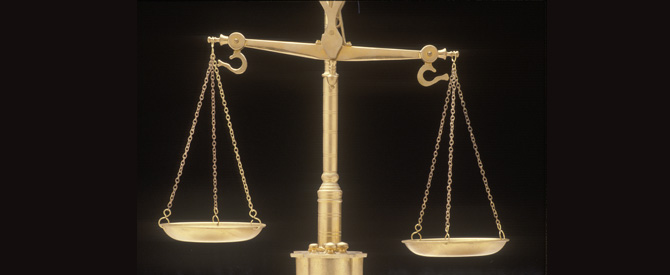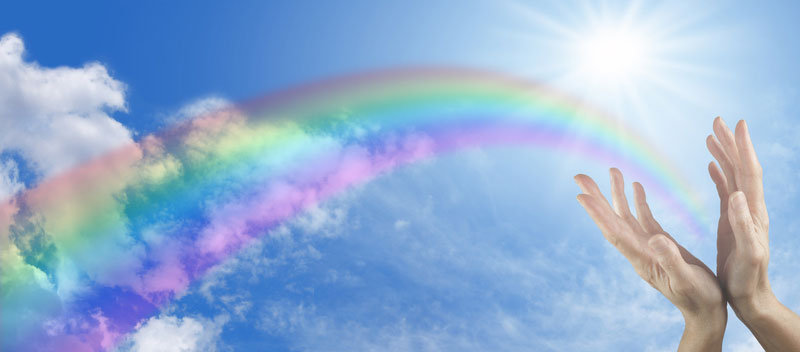Wars, economic uncertainty, political instability, heinous crime, exploitation of people and the planet, extreme weather and natural disasters—these are just a few of the conditions that cause great suffering to millions around the world.
Why can’t we seem to find the peace that we so desperately want?? Why is there so much suffering?
If there is a divine creator of this world, whether you call it God, Source, Cause or by any other name, why doesn’t it do something to stop the suffering instead of allowing it to continue?
Who’s to be blamed?
Imagine a man who wins a luxurious, brand new house by the lake in a lottery. The huge home comes fully furnished with modern appliances, a pool, gorgeous landscaping and mature trees. He happily moves in along with his wife and four children.
All goes well for the first few years but then, the house starts to become shabby because the family neglects its care. The rooms are unkempt and in total disarray. There’s always litter and laundry on the floor. The pool is filthy, the garden is overgrown with weeds and an accidental fire caused by a lighted cigarette burns down half the house.
In this scenario, would it make sense for the father to go back to the builders of the house and demand that they clean it up and pay for the damages? Obviously not.
Similarly, we can’t blame our world problems on the creator. The suffering they cause is man-made, and not God-made.
Now you’ll probably agree that conflicts, wars, economic and political problems are man-made, but what about natural disasters and accidents commonly considered as “Acts of God?” How can they be man-made?
You will be surprised to know that even those calamities are caused by us. This is because nature and the outer world reflect the inner condition of our collective minds.
Inner turmoil and anger felt by large numbers of people around the world create similar strife and havoc outside. (Read: Natural disasters and extreme weather—why?)
Karmic merit and demerit
Even if you can accept that we create most of the problems and suffering in the world, you probably question why people face hardships, loss, pain and sorrow for no apparent reason.
Could suffering be random? Or worse—the result of a cosmic tyrant up in the sky who enjoys seeing people suffer and doles out sorrow at his whim and fancy?
This idea doesn’t make sense as it goes against the intelligence we see in the world. If the creator were mad, we would be experiencing chaos all around us.
But of course, this isn’t happening. The laws of the cosmos are well in place. For example, the earth’s rotation is so precise that we measure time by it. The forces of nature such as the wind, rains, tides, light rays etc. all function within rigid laws.
The answer to personal suffering may be found in the spiritual writings of the Hindus found in the great books called the Vedas.
They explain that unselfish or kind actions done to help or benefit others generate karmic merit and bring happiness to the doer of the actions. Selfish and unkind acts consciously done gather karmic demerit which gives rise to sorrow to the doer of the actions.
Simply put:
Unselfish actions > merit > happiness
Selfish actions > demerit (sin) > sorrow
Happiness or sorrow are the natural consequences of selfish and unselfish actions. This is in essence the Law of Karma.
The Law of Karma and Re-birth
If we reap what we sow, where could the causes of sorrow arise in babies born with health challenges, children in war-torn or impoverished nations, or kind and honest people who don’t seem to deserve pain and suffering?
Nothing happens randomly without a cause in the ordered, intelligent universe that we live in. If the causes for sorrow cannot be found, we can’t say they don’t exist.
It is because of this that the ancient spiritual masters of India formulated the theory of re-birth.
If happiness or sorrow is experienced right from the time children are born, surely this must be the result of actions done at some previous time. After all, results come only after the actions are done and never before.
So, the idea that we live more than one life comes out of an understanding of the Law of Karma. In fact, reincarnation is not merely a belief but one of the core principles of spirituality. The logic makes perfect sense. Without it, there are too many unanswered questions. (Read: Birth and Re-birth)
Way out of suffering
We are conscious beings travelling from life to life enjoying and suffering the results of past actions. In the process, we perform new actions that create results to be lived through in future lives.
Does this mean that we are permanently bound to repeated cycles of birth and death, never finding the end of suffering?
What’s the way out?
Vedanta the spiritual science of life explains that our suffering stems from the fact that we think that we are limited, mortal and sorrowful humans ever chasing an elusive happiness.
However, our true nature is unlimited, immortal and blissful spirit. The happiness we are searching for is neither outside nor inside of us, but it is us! (Read: True Happiness is inside—really?)
The way to uncover this source of happiness is through the path of spirituality.* All spiritual disciplines prepare us for the final rediscovery of our true spiritual nature. Only then will there be a complete end to all our suffering.
*To find out more, read How to begin your spiritual journey and How to live life purposefully
Like this post? Sign up for the free fortnightly Spiritual Solutions Newsletter and receive the latest articles, news and updates in your email inbox!














Suffering is something we create for ourselves. Happiness is something you are, when you are not making yourself miserable. Happiness is our natural state. Pain is something else…and comes from the nerves of the body. Suffering arises in the mind. I think it is important to make the distinction between pain and suffering.
Thank you, Eric for sharing your thoughts. Yes, you are absolutely right—suffering is something we create for ourselves and happiness is our natural state.
To your point about the fact that pain “comes from the nerves of the body,” and “suffering arises in the mind,”—If I understand correctly, I think what you are trying to say is that pain is physical and suffering is mental.
The body can be affected by a blow or a cut, for instance, and the sensation of the damage is carried by the nerves and registered in the physical brain. The mind, which is a flow of thoughts determined by past experiences decides if the sensation is mildly, moderately or extremely painful. The body on its own doesn’t feel pain, as demonstrated by people who are subjected to some form of anaesthetic. Once the signals to the brain are numbed, the sensation of pain is not registered. In fact, the mind can be tricked into thinking that there is pain even if there has been no physical hurt or damage.
Pain and suffering are both mental.